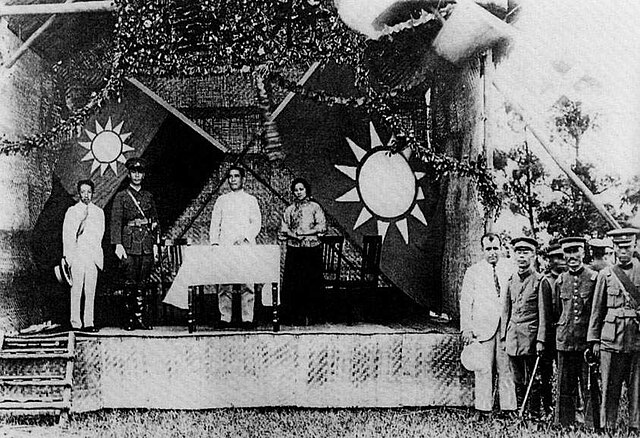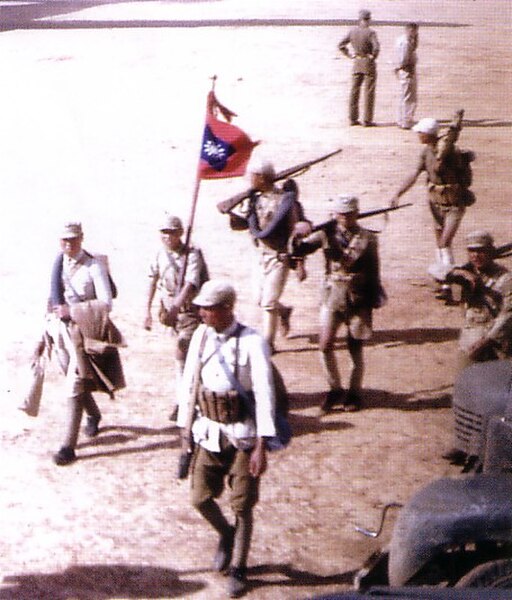Bai Chongxi was a Chinese general in the National Revolutionary Army of the Republic of China (ROC) and a prominent Chinese Nationalist leader. He was of Hui ethnicity and of the Muslim faith. From the mid-1920s to 1949, Bai and his close ally Li Zongren ruled Guangxi province as regional warlords with their own troops and considerable political autonomy. His relationship with Chiang Kai-shek was at various times antagonistic and cooperative. He and Li Zongren supported the anti-Chiang warlord alliance in the Central Plains War in 1930, then supported Chiang in the Second Sino-Japanese War and the Chinese Civil War. Bai was the first defense minister of the Republic of China from 1946 to 1948. After losing to the Communists in 1949, he fled to Taiwan, where he died in 1966.
Bai Chongxi
Chinese generals pay tribute to the Sun Yat-sen Mausoleum in Beijing in 1928 after the success of the Northern Expedition. From right to left, are Gen. Cheng Jin, Gen. Zhang Zuobao, Gen. Chen Diaoyuan, Gen. Chiang Kai-shek, Wu Zhihui, Gen. Yan Xishan, Gen. Ma Fuxiang, Gen. Ma Sida and Gen. Bai Chongxi.
In May 1938, Bai Chongxi appeared on the cover of The Young Companion
Bai Chongxi as the 1st Minister of National Defense of the Republic of China after the 1947 Constitution.
National Revolutionary Army
The National Revolutionary Army, sometimes shortened to Revolutionary Army (革命軍) before 1928, and as National Army (國軍) after 1928, was the military arm of the Kuomintang from 1925 until 1947 in China during the Republican era. It also became the regular army during the KMT's period of party rule beginning in 1928. It was renamed the Republic of China Armed Forces after the 1947 Constitution, which instituted civilian control of the military.
The opening ceremony of the Whampoa Military Academy, with Sun Yat-sen and Chiang Kai-shek.
NRA troops against Sun Chuanfang's private army preparing to defend Shanghai.
National Revolutionary Army soldiers marched into the British concessions in Hankou during the Northern Expedition.
The NRA during World War II








